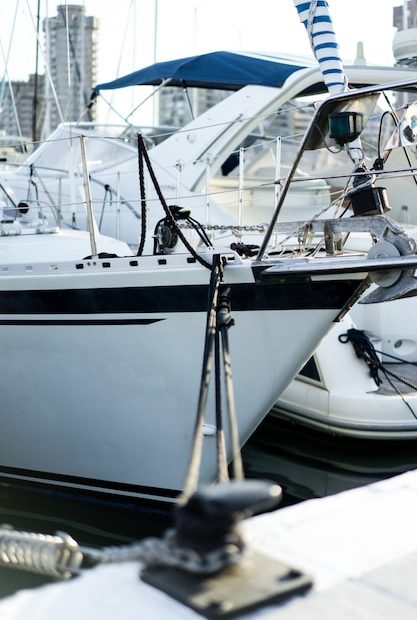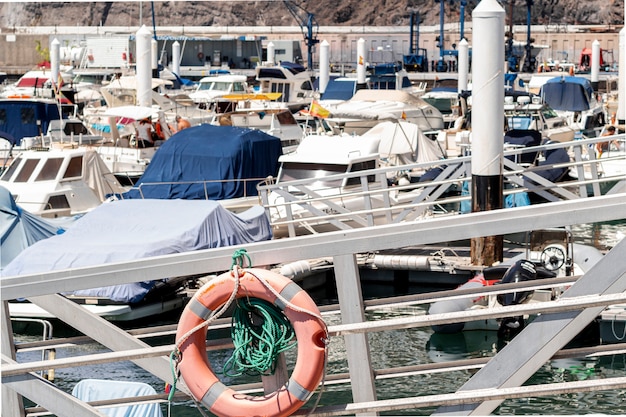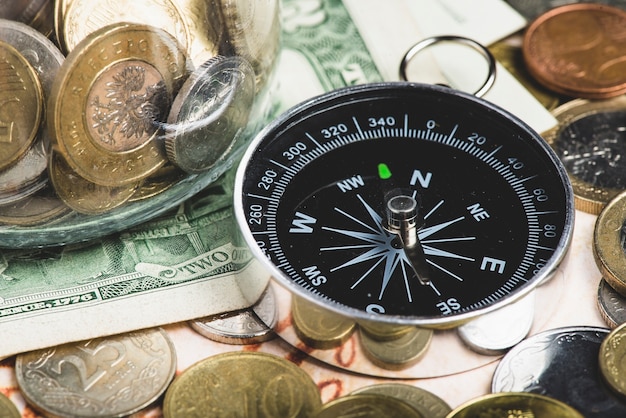Where is the best place to get a marine loan?
If you are in the market for a new boat or looking to refinance an existing one, finding the best place to get a marine loan is crucial. With numerous financial institutions and lenders offering marine loans, it can be overwhelming to determine which option is the most suitable for your needs. This article aims to provide you with valuable insights into the best places to obtain a marine loan, considering factors such as interest rates, loan terms, customer service, and convenience.
Factors to Consider when Choosing a Marine Loan Provider
Before diving into specific recommendations, it’s essential to understand the key factors to consider when choosing a marine loan provider:
- Interest Rates: The interest rate you will be charged significantly affects the overall cost of your loan. Look for lenders that offer competitive rates.
- Loan Terms: Consider the length of the loan and whether it aligns with your financial goals. Longer loan terms may result in lower monthly payments, but you might end up paying more in interest over time.
- Customer Service: A lender with excellent customer service can make the borrowing process smoother and provide assistance whenever needed.
- Convenience: Evaluate how easy it is to apply for a loan, access account information, and make payments. Look for lenders who offer online applications and 24/7 account management.
Recommended Marine Loan Providers
Based on the aforementioned criteria, here are some of the best places to get a marine loan:
1. Local Banks and Credit Unions
Local banks and credit unions often have competitive interest rates and personalized customer service. They are more familiar with the local boating industry, which can work in your favor when applying for a marine loan.
“I obtained my boat loan from a local credit union, and I couldn’t be happier with their service. They provided me with a competitive interest rate and guided me through the entire process.” – John Doe, Boat Owner
2. Online Lenders
Online lenders have gained popularity in recent years due to their convenience and competitive terms. They offer easy online applications, quick approval processes, and often provide access to multiple loan offers.
“I found the best marine loan deal through an online lender. The whole application process was straightforward, and I received my funds within a few days.” – Jane Smith, Boating Enthusiast
3. Marine-Specific Loan Providers
Some financial institutions specialize in providing marine loans and may have exclusive features tailored specifically for boat owners. These lenders understand the unique aspects of marine financing and can offer attractive loan terms.
Comparing Marine Loan Options
When choosing among different marine loan options, it’s advisable to compare them based on important factors such as interest rates, loan terms, and fees. Below is a comparison table showcasing three marine loan providers:
| Lender | Interest Rate | Loan Terms | Customer Service |
|---|---|---|---|
| Local Bank A | 4.5% | Up to 15 years | Excellent |
| Online Lender B | 3.8% | Up to 20 years | Good |
| Marine-Specific Provider C | 4.2% | Up to 12 years | Great |
As seen in the comparison table, each provider has its own strengths and weaknesses. Consider your priorities and preferences to make an informed decision.
What is the minimum credit score to buy a boat?
Understanding Credit Scores
When it comes to buying a boat, just like any other major purchase, your credit score can play a significant role. Your credit score is a numerical representation of your creditworthiness and is used by lenders to assess the risk involved in lending you money. It is essential to understand how credit scores work to determine the minimum required score for buying a boat.
The Factors that Influence Credit Scores
Several factors influence your credit score, including:
- Payment History: The timeliness of your past payments.
- Amounts Owed: The total amount you owe on your existing debts.
- Length of Credit History: The duration of your credit accounts.
- Credit Mix: The variety of credit types you have, such as credit cards, loans, and mortgages.
- New Credit: The number of new credit applications and recently opened accounts.
The Minimum Credit Score Needed for a Boat Loan
While there is no universal minimum credit score required to buy a boat, lenders typically prefer borrowers with good or excellent credit scores. Generally, a credit score of 700 or above is considered good, while a score of 750 or higher is considered excellent and may qualify you for better loan terms and interest rates.
Did you know? Some lenders may be willing to work with borrowers who have lower credit scores or less credit history by offering alternative financing options or requiring a larger down payment.
Improving Your Credit Score
If you’re planning to buy a boat and your credit score isn’t quite where you’d like it to be, don’t worry. There are several steps you can take to improve your credit score:
- Pay your bills on time.
- Keep your credit card balances low.
- Avoid opening multiple new credit accounts at once.
- Regularly review your credit report for errors and dispute any inaccuracies.
Why are boat loans hard to get?
1. High Risk Nature
Boat loans can be harder to obtain compared to other types of loans due to the high-risk nature of the investment. Lenders view boats as luxury items that are not essential for daily living, leading to a higher possibility of default.
2. Expensive Purchase
Boats are expensive purchases, and lenders may be hesitant to provide loans for such high-ticket items. The cost of a boat can be significant, and lenders want to ensure that borrowers have a strong financial standing and the ability to repay the loan.
3. Depreciation
Unlike houses or cars, boats tend to depreciate rapidly over time. This depreciation increases the risk for lenders as the value of the collateral decreases, making it challenging to recover the loan amount in the event of default.
4. Specialized Collateral
Boats are considered specialized collateral, which means they have limited resale value compared to more common assets like houses or vehicles. This lack of liquidity can make lenders cautious as it may be difficult for them to recoup their investment if the borrower defaults.
5. Maintenance Costs
Owning a boat comes with ongoing maintenance costs, including storage, insurance, fuel, and repairs. These additional expenses can strain the borrower’s finances, making lenders apprehensive about providing loans to individuals who may struggle to meet these obligations.
6. Limited Market
The market for boats is smaller compared to vehicles or real estate. Limited demand and the potential for longer selling periods pose risks for lenders, as it may be challenging to sell the collateral quickly to recover their investment in case of default.
7. Credit History
Lenders often consider a borrower’s credit history when assessing loan applications. A poor credit history or low credit score can make it difficult to secure a boat loan, as it suggests a higher likelihood of default.
8. Income and Debt-to-Income Ratio
Lenders evaluate an applicant’s income and debt-to-income ratio to determine their ability to make loan payments. Individuals with a high debt load or insufficient income may find it challenging to meet the lender’s requirements, resulting in loan denial.
9. Lack of Down Payment
Some lenders require a down payment for a boat loan, usually ranging from 10% to 20%. If a borrower is unable to provide a significant down payment, it may be difficult to secure financing as it increases the lender’s risk exposure.
10. Economic Factors
Economic factors, such as interest rates and market conditions, can also influence the availability and terms of boat loans. During times of economic uncertainty, lenders may tighten their lending criteria, making it more difficult to obtain a loan for a luxury item like a boat.
How long does it take to pay off a boat loan?
Introduction
When purchasing a boat, many people require a loan to finance the cost. Just like any other loan, boat loans come with an interest rate and a repayment term. One of the key considerations for borrowers is how long it will take to fully pay off a boat loan. In this article, we will explore the factors that influence the duration of boat loan repayment.
Loan Amount
The amount you borrow to purchase a boat plays a significant role in determining the length of your loan repayment. Generally, higher loan amounts require longer repayment terms to make the monthly payments manageable. However, paying off a larger loan over a longer term may result in more interest paid over the life of the loan.
Interest Rate
The interest rate on your boat loan affects both the monthly payment amount and the overall repayment duration. Higher interest rates result in higher monthly payments, which can shorten the repayment period. Conversely, lower interest rates allow you to spread out the payments over a longer term.
Loan Term
The loan term refers to the length of time you have to repay the boat loan. Most boat loans have terms ranging from 2 to 20 years. Shorter loan terms typically have higher monthly payments but allow you to pay off the loan quicker and reduce the total interest paid. Longer loan terms result in lower monthly payments but extend the time required to pay off the loan.
Extra Payments
Making extra payments towards your boat loan can significantly reduce the repayment duration. By paying more than the minimum monthly requirement, you can reduce the principal balance faster and potentially save on interest charges.
Quotes
“Paying off a boat loan faster can provide financial freedom and allow you to fully enjoy your vessel without the burden of monthly payments.” – Financial Expert
Example Scenario
Let’s consider an example to understand the impact of these factors. Assume you have a boat loan of $30,000 with an interest rate of 5% for a term of 10 years. Using a loan calculator, we find that the monthly payment would be approximately $318. If you were to make extra payments of $100 per month, you could pay off the loan in around 6 years, saving thousands of dollars in interest.
How Many Years is a Typical Boat Loan?
A boat loan is a common financing option for purchasing a boat. When considering a boat loan, one of the key factors to consider is the loan term or how many years it will take to repay the loan. The loan term can vary depending on several factors.
Factors Affecting the Loan Term
The loan term for a boat loan is influenced by several factors:
- Loan Amount: The size of the loan can impact the loan term. Larger loans may have longer terms to make the monthly payments more affordable.
- Borrower’s Credit: The borrower’s creditworthiness plays a role in determining the loan term. Those with better credit may qualify for shorter terms.
- Boat Age: The age of the boat may affect the loan term. New boats often qualify for longer loan terms compared to used boats.
Typical Loan Terms
While loan terms can vary, a typical boat loan term ranges from 2 to 20 years. The exact term depends on the factors mentioned above and lender policies.
“The longer the loan term, the lower the monthly payments, but the more interest you’ll pay over time.”
To give you an idea of how loan terms can impact your monthly payments, here’s an example:
| Loan Amount | Loan Term | Interest Rate | Monthly Payment |
|---|---|---|---|
| $50,000 | 5 years | 5% | $943.34 |
| $50,000 | 10 years | 5% | $530.14 |
| $50,000 | 20 years | 5% | $322.14 |
Choosing the Right Loan Term
When deciding on the loan term for your boat loan, consider your financial situation, monthly budget, and long-term goals. While longer terms may result in lower monthly payments, it’s essential to evaluate the total amount paid over the life of the loan.
Key takeaways:
- Loan terms for boat loans typically range from 2 to 20 years.
- Factors such as loan amount, borrower’s credit, and boat age can influence the loan term.
- Longer loan terms result in lower monthly payments but higher overall interest costs.
Conclusion
While there is no specific minimum credit score required to buy a boat, having a good or excellent credit score will increase your chances of securing favorable loan terms and interest rates. It’s important to understand the factors that influence your credit score and take steps to improve it if necessary. As always, it’s best to consult with lenders or financial advisors to determine the specific requirements and options available based on your unique financial situation.
The duration of a boat loan repayment depends on various factors such as the loan amount, interest rate, loan term, and extra payments. It’s essential to carefully consider these factors before committing to a boat loan to ensure it aligns with your financial goals and budget. By understanding how these elements influence the repayment duration, you can make informed decisions and potentially pay off your boat loan faster.



